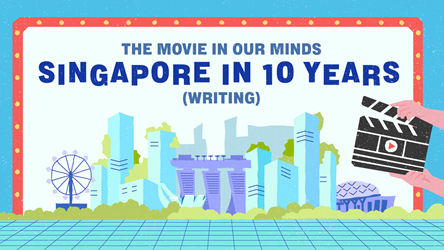Camera surveillance everywhere, all the time - yay or nay
.jpg?sfvrsn=2)
What new skills do you want to pick up in 2017 that you can apply to your work?
Send your entry to psd_challenge@psd.gov.sg.
The most exciting entry will receive a prize worth $100. All other published entries will win vouchers worth $30 each. Please include your name, agency email address, agency and contact number.
All entries should reach us by December 3, 2016.
.jpg)
Peter Chutatape, MOE
A major perk of these cameras is to “crowd source” data that would otherwise be inaccessible or overlooked by officers, for example, a leaking pipe, errant behaviour or a spelling gaffe in a public sign. These, which could go unnoticed since officers are not omniscient, allow opportunities for society to be more considerate and morally courageous. The flipside is that not all camera etiquette has been becoming of concerned members of society. Some prefer to take photos, rather than speak up or confront in a firm and fair manner. By educating the public on what contexts could be confronted in safe ways (without the use of cameras), and other contexts where taking photo/video evidence would be more appropriate, having more “eyes” everywhere presents boosts to safety, vigilance and civic-mindedness in our society.Congratulations, Peter! You win a gift voucher worth $100 so you can get yourself a posh pair of sunglasses and go incognito whenever you want.
Tan Jia Lin, NParks
It is not entirely bad that there are people watching. It shows that the public does notice and observe, for instance, what kind of service we provide, how we speak to members of the public, as well as how we respond to them when we are put in certain circumstances. Whether we might be in uniform or even just civilian clothes, as public officers, we represent the whole organisation. When unpleasant news surface around one public officer, it is not difficult for the public to form negative views about public officers in general. Having said that, public officers should not behave appropriately only when there are “eyes” around, whether people are physically watching or there are cameras around.
Jodi Chiang, MSF
Many of us will bemoan the excessive scrutiny, a possible loss of privacy in our personal lives, and how easily a misleading image may go viral. A minority may feel that this issue is irrelevant: After all, how can the full scope of our work possibly be captured in an image? Whether for praise or condemnation, it is dangerous and unhelpful when the complexity of our work, the many considerations behind every decision, and the multifaceted nature of our selves as professionals and people are compressed into a decontextualised snapshot.
Ong Kai Li, MOM
I don’t see this as a good thing or bad thing, just something that is inevitable for both the public and public officers as society develops and technology costs decrease. And I honestly doubt anyone would review the volume of information coming through.
- POSTED ON
Nov 1, 2016
-
Feature
The Total Defence Challenge









